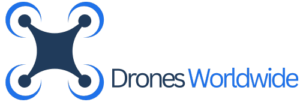Firm takes main step towards a completely home battery provide chain in response to geopolitical and provide chain pressures
Lyten Strengthens U.S. Battery Trade with Home Lithium-Metallic Manufacturing
Lyten, a California-based supermaterial firm, has introduced the manufacturing of the primary U.S.-made battery grade lithium-metal foil utilizing home lithium alloys and uncooked supplies. This achievement marks a serious step in establishing a completely American battery provide chain—free from reliance on foreign-sourced crucial minerals.

The announcement comes as U.S. authorities companies and protection leaders emphasize the pressing want to cut back dependence on China for battery supplies and manufacturing. Presently, most world battery provide chains rely closely on Chinese language processing of minerals like nickel, cobalt, and graphite.
Lyten’s Lithium-Sulfur batteries don’t use any of those supplies. As an alternative, they depend on a sulfur cathode and lithium-metal anode. This new manufacturing milestone permits Lyten to supply each cathodes and anodes totally within the U.S., avoiding tariffs and provide chain vulnerabilities.
“To construct a U.S. battery trade, we should clear up the provision chain problem,” stated Dan Cook dinner, Lyten Co-Founder and CEO. “Now we have already eradicated the necessity for nickel, manganese, cobalt, and graphite with our Lithium-Sulfur battery, permitting us to concentrate on native provide and manufacturing of lithium. Lyten would be the solely battery producer within the U.S. shielded from tariffs and significant minerals threat.”
A Tariff-Free, Totally Home Battery Provide Chain
Lyten’s strategy helps a nationwide push for safe, clear vitality applied sciences. In contrast to lithium-ion batteries, which frequently require abroad supplies and processing, Lithium-Sulfur batteries might be made with extensively out there U.S. sources.
“Lithium is abundantly out there throughout america, however the capability to course of lithium into battery grade supplies is extraordinarily restricted within the U.S. Having the ability to design and course of our personal lithium-metal alloys and foils is a recreation changer,” stated Celina Mikolajczak, Lyten’s Chief Battery Know-how Officer. “It places Lyten on the entrance fringe of U.S. battery manufacturing.”
Lyten partnered with Artistic Engineers, Inc. in New Freedom, Pennsylvania, to supply proprietary lithium alloys. The corporate sources lithium-metal feedstock from a facility within the Jap U.S., then converts the fabric into lithium-metal foils at its San Jose facility. This foil is used instantly in its Lithium-Sulfur battery manufacturing strains.
Help for Protection, Aerospace, and Electrical Autos
Lyten’s batteries at the moment are compliant with the Nationwide Protection Appropriations Act (NDAA), enabling safe purposes in protection and aerospace. Along with its San Jose plant, Lyten not too long ago acquired Northvolt’s battery manufacturing facility in San Leandro, California, to increase its U.S. manufacturing capability.
In 2024, Lyten secured a $650 million letter of curiosity from the Export-Import Financial institution of the U.S. to scale up vitality storage programs utilizing Lithium-Sulfur expertise. The corporate additionally introduced collaborations to combine its batteries into Chrysler’s Halcyon Idea EV, AEVEX Aerospace UAVs, and an indication mission aboard the Worldwide Area Station later in 2025.
An American Reply to Geopolitical Provide Chain Dangers
Lyten’s enlargement highlights how U.S. firms are stepping as much as meet the problem of geopolitical stress and provide chain instability. Through the use of supplies like sulfur—which is ample and infrequently a byproduct of different industries—Lyten is constructing batteries which are each sustainable and safe.
Based in 2015, Lyten has raised over $425 million and holds greater than 510 patents. Its Lyten 3D Graphene platform is the inspiration for superior batteries, robust light-weight composites, and precision sensors.
Learn extra:


Miriam McNabb is the Editor-in-Chief of DRONELIFE and CEO of JobForDrones, an expert drone companies market, and a fascinated observer of the rising drone trade and the regulatory atmosphere for drones. Miriam has penned over 3,000 articles centered on the business drone house and is a world speaker and acknowledged determine within the trade. Miriam has a level from the College of Chicago and over 20 years of expertise in excessive tech gross sales and advertising for brand new applied sciences.
For drone trade consulting or writing, Electronic mail Miriam.
TWITTER:@spaldingbarker
Subscribe to DroneLife right here.

